Graham Reid | | 7 min read
Lou Reed: How Do You Think It Feels?

Right from the beginning -- aside from a short period as a jobbing songwriter for the Pickwick label in ‘64-’65 -- Lou Reed’s lyrics had a literary quality.
With the Velvet Underground his songs would take the listener to an immediate location (“standing on the corner . . .”) or conjure up characters (“she’s a femme fatale”) in the manner of compressed short stories or evocative poems.
What Reed was doing, and it seemed natural to him given his literary background and aspirations, was bringing the literature and poetry he had read into the format of contemporary song.
That his subjects seemed torn from the pages of Last Exit to Brooklyn or were populated by the colourful, not to say strange, characters from within Andy Warhol’s Factory went past many of those writing about popular music at the time: in the late 60s rock criticism was in its infancy (Rolling Stone’s first issue came in late ‘67, six months after the VU debut album, but didn’t have a big impact for a couple of years). Many assigned the task of writing about rock music were journalists whose beat was straight reporting.
To many such writers -- white, male and middle-class -- the VU were simply singing about junkies, drag queens, lowlifes and character on the margins of society.
Which was of course true, although few blinked when such characters were on the pages of popular novels.
But the VU also arrived in the multi-coloured post-hippie period and their black leather’n’needles image and lifestyle was about as far removed from the cosmic vibe of SanFran and London's faux-Edwardian foppery as could be imagined, and certainly not to be tolerated or taken seriously.
The short and often fraught career of the VU left Lou stateless when it finally imploded, and his self-titled solo debut of ’72 found him sweeping up some left-over and unrecorded VU material (and two new songs, one of which was Berlin).
The album was a disappointment and met with critical indifference, so for Reed and his record company a lot was hanging on its follow-up.
Enter David Bowie, a VU/Lou fan, who took on production duties for what would become Transformer later that year.
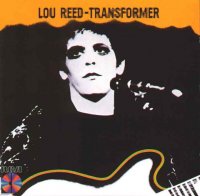
At the time Bowie (with co-producer and Spiders From Mars guitarist Mick Ronson) was at the peak of his game and fame as a glam-rock icon. He also knew how to craft hits out of raw material.
Reed, stung by the indifference with which his debut had been received (it only just made the top 200 in the States), came up with a bag of literary lyrics that invited polishing.
Again he crafted stories in song, few more economic than Walk on the Wild Side which created characters within a few lines, and each new verse introduced another: “Holly came from Miami, FLA, hitchhiked her way across the USA, plucked her eyebrows on the way, shave her legs and then he was she . . .”
With sharp songs like Perfect Day, Vicious, Satellite of Love and a hit single with the risqué Walk on the Wild Side, Reed and Bowie delivered an album that was an immediate success.
It put Reed on the same stack-heeled level as Bowie and, with kohl-eyes and a slutty glam look, he fitted right in to the scene. And of course his record company wanted another album just the same.
But Reed had other ideas: a narrative song cycle that was as bleak as could be imagined. It would be his grand project Berlin which would free him from the trap of chart fame and pop culture and put his artistic and literary ambitions back to the forefront.
Reed always took his art seriously and the frivolity of being a dark glam-rock pop star didn’t appeal at all. He was 30 and not some kid for whom a Top of the Pops appearance was the pinnacle of a career.
“I had to do Berlin,” he said later. “If I hadn’t done it I’d have gone crazy.”
To realise the project Reed struck a deal with his record company, that if he could do Berlin then he’d deliver a live album and a something more akin to Transformer after that. It seemed like a good idea at the time.
“Berlin was thought of as a concept album right from the top. It was an adult album meant for adults -- by adults for adults.”
It certainly had adult themes: self-destruction and addiction played out against the backdrop of an imagined Berlin, a city then as divided, dysfunctional and damaged as the characters in Reed’s over-arching and unremittingly bleak narrative.
In the lyrics Reed also put down many aspects of his increasingly difficult life, and his characters are stripped of any semblance of glamour. It is a violent story played out by battered people. But it was always literary in Reed’s conception.
“Instead of making a division between pop songs and a real story or a real poem, merging them so the separation didn’t exist any more.”
Berlin was originally planned as a double album -- they had over an hour of music -- but at the last minute Reed and producer Bob Ezrin (who had worked with Alice Cooper, an artist also using broad conceptual strokes) were told the record company wouldn't accept anything but a single album.
Ezrin pulled out 14 minutes of solos, endings and digressions - then had a heroin crash.
Reed wasn't in any better physical shape although as a writer he was seldom better: he inhabited the characters of the songs, blurred the line between conversation, poetry and song lyrics, and planned a stage show around the work.
Ezrin told Reed at the time he thought there was a film in the album: "Why can't we write a story with an atmosphere and frame it with sound effects and special photographs. Why just do a record? Anybody can do a record but Lou Reed can write people."
Reviews of Berlin were almost universally negative: Rolling Stone called it “a disaster” and the reviewer for the Village Voice -- Lou’s hometown alt.press -- said it was about “a druggy bi slut who gets her kids taken away”.
True, but a more charitable view might have allowed that it was much more than that, and also a cathartic statement by an artist whose world-view was very different.
“If people don’t like Berlin it’s because it’s too real, “ said Reed. “It’s not like a TV programme where all the bad things that happen to people are tolerable. Life isn’t like that. And neither is the album.”
He may have decried critics and appealed directly to his mature audience (“”Who cares about critics? Berlin was an album for adults.”) but it met with little success.
The album did well enough in the UK however where both he and Bowie were well respected (it got to number 7 on the charts before a rapid plummet) but in the States it barely scrapped into the top 100.
“Berlin was a big flop and it made me very sad,” Reed admitted. “The way that album was overlooked was probably the biggest disappointment I ever faced. I pulled the blinds shut at that point, and they’ve remained closed.”
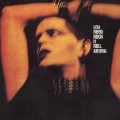
Within months he had taken to the road in poor health and increasingly morose and addicted, and delivered his contractual obligation live album - the strident Rock’n’Roll Animal which opened with a salvo of guitar-rock on his hit Sweet Jane.
It was an instant success peaking at 45 in the US and staying on the charts for 27 weeks.
Reed hated it: “Berlin being a failure and Rock’n’Roll Animal being a smash was hard to take. What I really liked was Berlin. Rock’n’Roll Animal? What a degrading thing that was.”
But Berlin never really went away. Reed briefly discussed with Warhol the possibility of making it into a Broadway musical and Ezrin‘s belief that it could be a film remained strong.
Over the decades the album has grown in stature and these days it is seen as part of the continuum of Reed’s conceptual albums which include New York (89), Drella with John Cale (1990, about the life of Andy Warhol), Magic and Loss (92), and The Raven (2003).
And in December 2006 -- with original guitar Steve Hunter back as bandleader, longtime friends/bassists Rob Wasserman and Fernando Sanders, plus a cast which included Antony, a string quartet and a choir -- Reed presented Berlin over five nights in New York to be filmed by Julian Schnabel.
The live album which has resulted is co-produced by Bob Ezrin and album conceptualist Hal Wilner.

This is a different Berlin to the original however: Reed brings more compassion to his characters and if his voice does not have the power of years ago that also makes for some of its emotional resonance.
Reed said he never condemned his characters -- he was reporting their lives -- but here he sounds more sympathetic, the wisdom of the years perhaps?
It is also tempered by including the popular Candy Says and Sweet Jane.
Berlin was a pivotal point in Reed’s career. Many of his friends saw it as a turning point and the bitterness he had at its commercial and critical failure soured him permanently. Others noted that as a rock poet he never bettered it.
That is debatable -- many would go to bat for New York being its equal, Songs for Drella a more coherent vision.
But what is beyond doubt is that Berlin (like it or revile it) was a major work by an artist who put a premium on his gifts . . . only to find the world he offered them to was wanting.
These Essential Elsewhere pages deliberately point to albums which you might not have thought of, or have even heard . . .
But they might just open a door into a new kind of music, or an artist you didn't know of. Or someone you may have thought was just plain boring.
But here is the way into a new/interesting/different music . . .
Jump in.
The deep end won't be out of your depth . . .

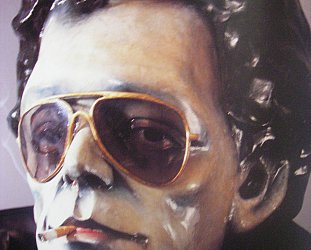
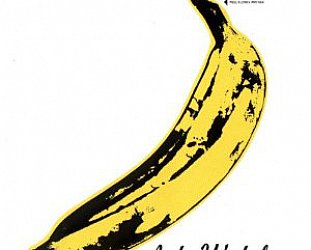
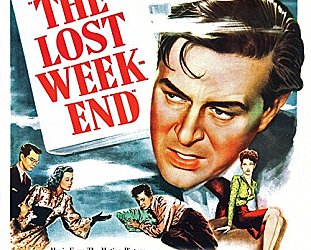
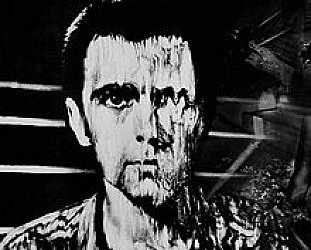
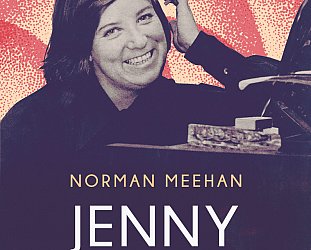

post a comment